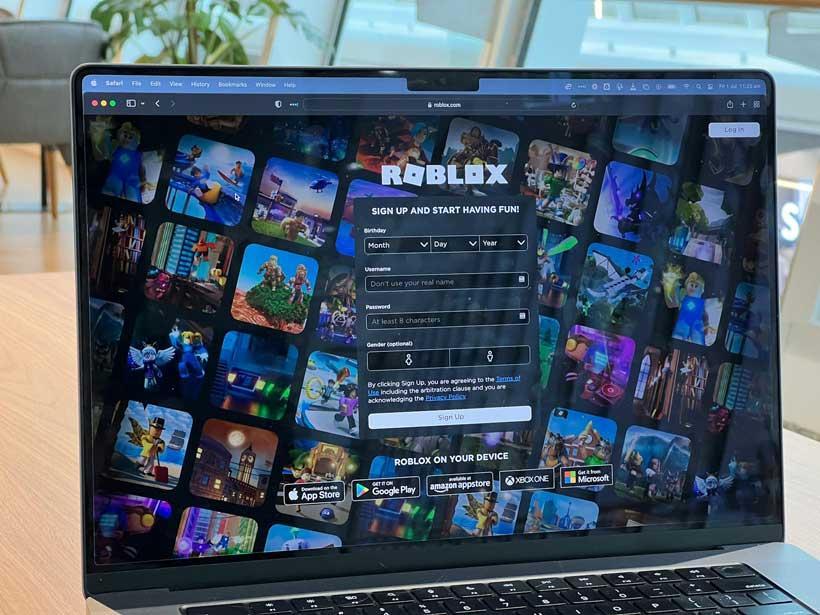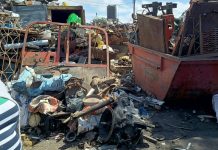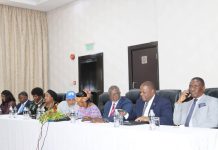By
Tuhu Nugraha
Africa-Press – Mozambique. “The metaverse is not the end of games—it’s the beginning of shared experiences,” said David Baszucki, the founder of Roblox. His vision frames the platform not as a pastime but as a prototype of the future economy. Yet this global vision often collides with reality in the Global South, where governments must balance optimism with caution. Two recent headlines from Indonesia captured the paradox faced by many developing nations. One announced a partnership between the Ministry of Tourism and Creative Economy and Roblox to grow the creative economy. The other warned of potential restrictions on Roblox for school-aged children by the Ministry of Education. Together, these headlines highlight the ambivalence of the Global South—caught between the opportunities of new technologies and the risks they inevitably bring.
Roblox is increasingly seen as more than pixels on a screen. It is perhaps the clearest prototype of a functioning metaverse economy, where cultural narratives, economic innovation, and even diplomacy converge. The platform’s growth in 2025 illustrates its rising importance: in Q2, Roblox reached 111.8 million daily active users—up 41% year-on-year—with 27.4 billion hours of engagement (+58%) and bookings of US$1.44 billion (+51%) (Roblox Q2 2025 Report).
Asia-Pacific, now the fastest-growing market, reached 35.6 million DAUs, accounting for 35.7% of Roblox’s global base, with user numbers expanding 2.3 times between Q2 2023 and Q2 2025. Indonesia, the Philippines, and Vietnam were key drivers, supported by widespread mobile access and young demographics. Latin America also surged, with the region contributing 30 million DAUs (+38.9% year-on-year). Brazil’s user base grew 181% from 2020 to 2024, generating an estimated GDP impact of US$26.4 million in 2024, while Mexico followed as another major growth engine. In the Middle East and Africa, Roblox contributed an estimated US$15 million to GDP across Egypt, Saudi Arabia, Morocco, Qatar, and the UAE between Q3 2021 and Q3 2024 (Roblox Economic Impact Report 2024).
Examples from Indonesia illustrate the range of possibilities: universities have conducted lectures in Roblox, music festivals have drawn large audiences, and even virtual climbs of Indonesia’s iconic peaks have been staged. Beyond Indonesia, other Global South innovators are pushing boundaries. Studios like Nusantara Expedition Studio have created simulations of climbing Mount Kerinci and Mount Salak, transforming local cultural practices into global digital experiences. Car Driving Indonesia recreates city streets and local life with authentic details, from minimarkets to street vendors, which resonate with both local players and international audiences.
ASEAN launched the ImaginASEAN world to promote regional tourism, while AirAsia introduced AirAsia World as a virtual ecosystem blending travel, culture, and play. In Latin America, Brazil’s DoBig Studios rose to global prominence with viral titles like Steal a Brainrot, while the Filipino-American creator of Blox Fruits showed how diaspora talent can dominate worldwide rankings. Beyond games, creators in the Philippines, Indonesia, and Brazil are thriving in secondary markets, offering 3D assets, scripts, and design services to other developers worldwide. These examples demonstrate that Roblox is no longer simply a game but a stage where culture, creativity, and identity are turned into tradable assets—and where Global South creators can become central to a global supply chain.
For the Global South, this underscores an important reality: it may not be the region that builds the infrastructure, but it can provide the stories, content, and creative energy that fill these platforms. Given that the largest base of consumers comes from the Global South, two urgent priorities emerge. First, ensuring a fairer distribution of revenue to creators in these regions, preventing them from becoming mere labor for platforms owned elsewhere. Second, developing taxation mechanisms to monitor and capture a share of the vast economic activity taking place within metaverse platforms.
Governments also have a role in shaping how Roblox is used. Incentives can encourage more productive engagement—whether through learning, entrepreneurship, or cultural innovation—supported by pentahelix stakeholders (government, academia, industry, civil society, and media). This may include training programs inside Roblox on how to create and monetize digital works, setting competency standards for creators, and funding deeper research into the future potential of metaverse-based digital economies.
This leads to three strategic avenues:
Creative Asset Exports – positioning as providers of virtual goods, spaces, and experiences.
Cultural Storytelling – embedding local narratives in immersive formats for global audiences.
Virtual Services & Skills – developing a workforce capable of designing, moderating, and managing metaverse ecosystems worldwide.
These spaces are borderless, but the window to claim them is closing quickly. Global forums such as South-South Cooperation, ASEAN, the G20, and BRICS should already be addressing how to translate this potential into shared growth. Frameworks from international institutions can also serve as reference points: OECD has proposed principles for immersive digital environments that emphasize fairness, innovation, and inclusivity; UNESCO’s ROAM-X principles (Rights, Openness, Accessibility, Multi-stakeholder, and Cross-cutting issues) provide guidance for digital governance; and UNDP has stressed the importance of digital public goods in ensuring equitable benefits from new technologies.
A complementary instrument that should be included in national strategies is the Creative Permutation Framework (CPF), which can help governments in the Global South anticipate how platforms like Roblox evolve and how society responds. CPF explores different permutations of actors, motivations, and governance choices to map out possible futures. Using CPF, policymakers can examine scenarios: from governments embracing Roblox as an engine of the creative economy, to heavily regulating it for child safety, or even neglecting it until crises erupt. Such foresight enables a proactive strategy rather than reactive firefighting. Academics and experts in the Global South should move beyond criticism of existing systems and instead anticipate and shape the future.
China offers an instructive example. In 2021, it published one of the most comprehensive books on the metaverse to date, exploring opportunities, risks, social shifts, and necessary supporting technologies. The issue was discussed across multiple levels—from industry to policy—demonstrating how a nation can approach a disruptive concept with clarity and coordination. The key question for the Global South is whether it will develop similar forward-looking strategies or remain in reactive mode, fighting fires instead of building cities.
Legal frameworks are also essential. Governments in the Global South need to strengthen copyright protection for digital works, especially those created in collaboration with AI. Beyond regulation, governments should also involve think tanks and universities to identify the critical skills needed for the metaverse economy and to map new economic opportunities emerging in this space. This effort should not be limited to national boundaries—collaboration through bilateral or multilateral frameworks, as well as people-to-people exchanges, will be crucial to ensure inclusive growth and shared learning. The UAE has made progress through the Dubai Metaverse Strategy and regulatory sandboxes, while South Africa recognized a patent created by AI in 2021, sparking debate over ownership in AI-generated works. Brazil’s strong digital frameworks (Marco Civil da Internet and LGPD) are being interpreted to cover avatars and digital assets, while India’s courts are developing jurisprudence through NFT copyright disputes. In Indonesia, discussions on updating intellectual property law are beginning to consider these challenges, highlighting the urgency of reform.
Roblox as a prototype metaverse economy makes clear that the future of growth is not bound by geography. With AI reshaping the job market—erasing traditional roles and creating demand for new skills—the digital creative sector could become a bridge to millions of borderless, low-barrier jobs. For the Global South, this is both a glimpse of the future and an urgent call to act.
Closing reflection
Viewed through the lens of the Global South, Roblox reflects collective readiness. Closing the door is not an option, but neither is entering blindly. With smart regulation, visionary governance, and collaborative education, the Global South can ensure its creators are not just participants but shapers of the metaverse economy. That is technology for real impact—and a future worth claiming.
moderndiplomacy
For More News And Analysis About Mozambique Follow Africa-Press






